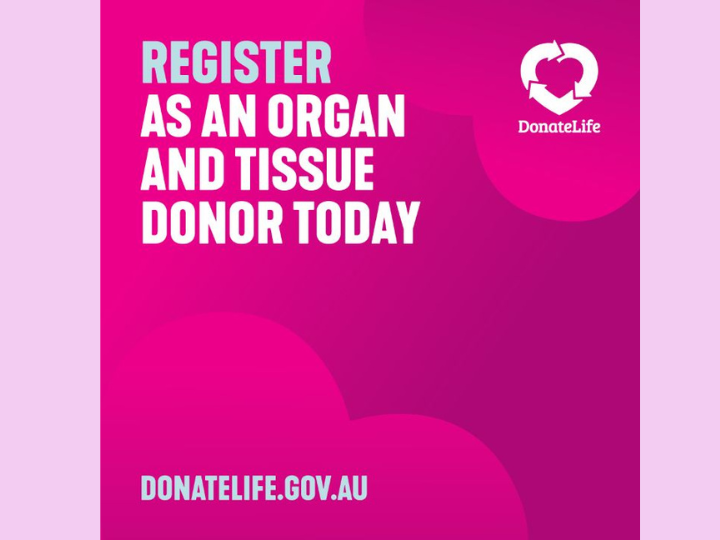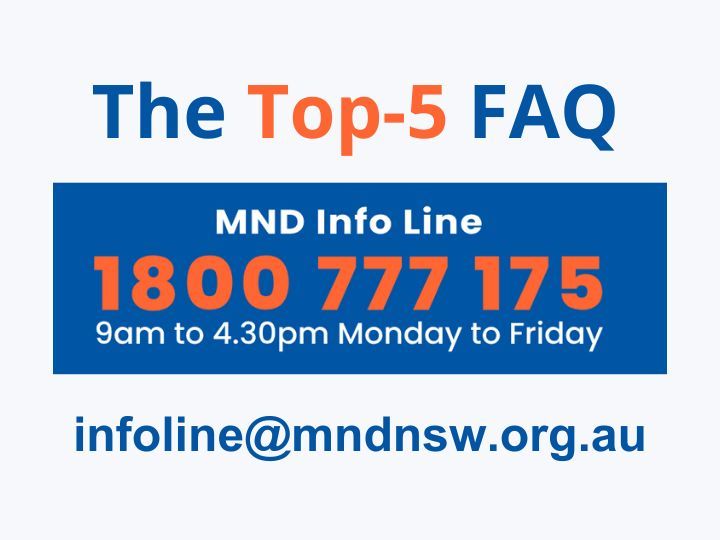DonateLife week is a national awareness campaign that takes place each year in July. This year’s campaign is from Sunday 27 July – Sunday 3 August 2025. The campaign seeks to encourage Australians to become organ and tissue donors. Currently around 1 in 3 people are registered as a donor.
To help raise awareness of the importance of organ and tissue donation, we are sharing some information about donation options which you might wish to investigate further.
Biobanking, organ donation for transplantation and organ donation for research are different but are equally important. People with MND can be considered for all three types, except in the case of eye tissue for the purpose of corneal transplantation. MND joins a long list of other medical conditions on that exclusion list.
Biobanking
People living with MND can participate in biobanking at any point after their diagnosis. Samples of bodily fluid or tissue including hair, blood and urine are collected and used for research to improve our understanding of MND.
The Neurogenerative Disease Biobank at Macquarie University collects nine different sample types. All patients of the MND service and clinic, and their families, are invited to contribute to the biobank. These samples are an invaluable resource for researchers to increase understanding of MND, and to identify trends and treatments.
The NSW Health Statewide Biobank (NSW HSB) is a storage facility, for tissue samples, DNA and blood samples which are used for vital research into population health, as well as human illness and disease.
Donation for transplantation
This means the organ and tissues are donated directly to another individual, by transplanting into the other person’s body.
Donation for transplantation of organs is complex and there are rules around where you die and the circumstances. According to the Australian Government’s Organ and Tissue Authority, only 2% of people who die in hospital each year can be considered for organ donation. A specialist team make an assessment on a case-by-case basis. If this is something you would like to do, it is critical that you are registered as a donor and that your family knows of your wishes.
Register here: Join the register | DonateLife
Donation for MND research
This means that the body, organs and tissue are donated for research or education, often to assist a specific area of research.
Some people with MND are interested in registering to donate their brain and spinal cord to research. Brain and spinal cord autopsy is the only way to determine the cellular changes caused by MND. The MND Brain Donor Program is spread across a number of research institutions in Sydney and accepts donations with strict criteria after clinical assessment. For more information speak with your neurologist or you can contact your MND Advisor.
Further information
- 1800 777 175 or
This email address is being protected from spambots. You need JavaScript enabled to view it. - Home | DonateLife
- Biobank at Macquarie University
- NSW Health Statewide Biobank (NSW HSB)
- End of Life Care: A guide for people living with MND (Chapter 12, page 97)




